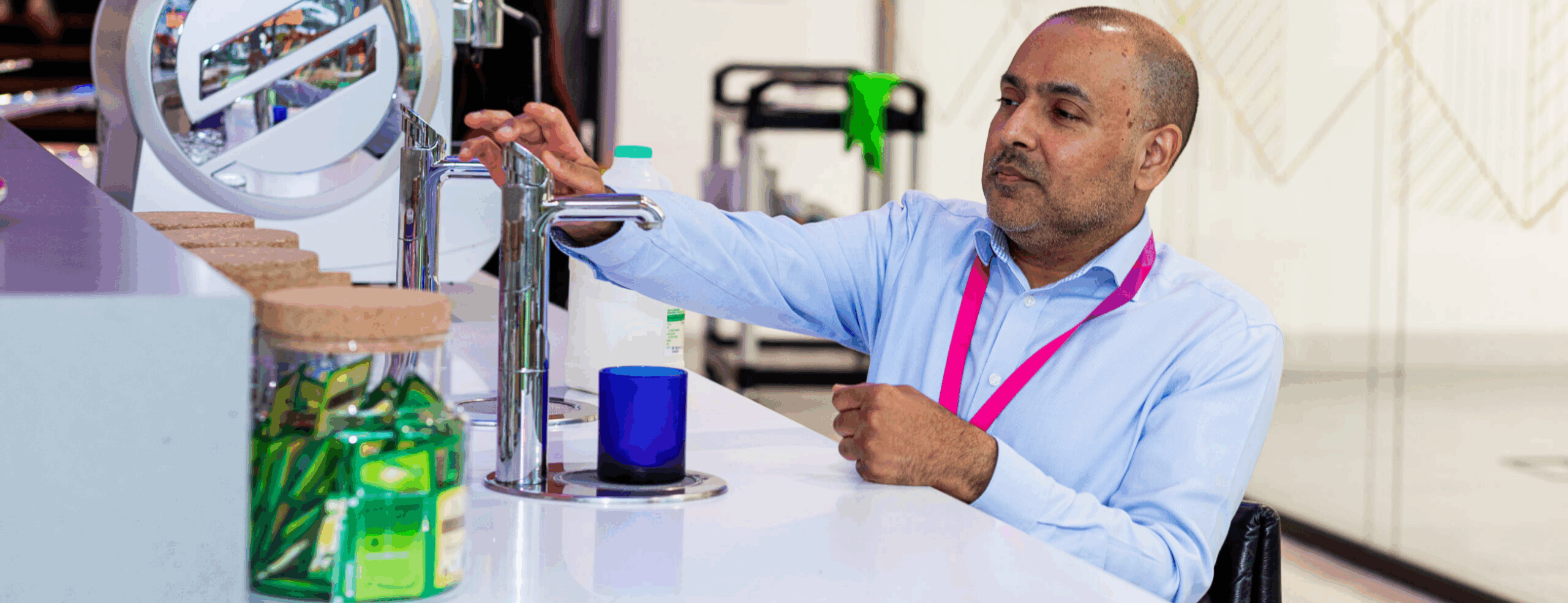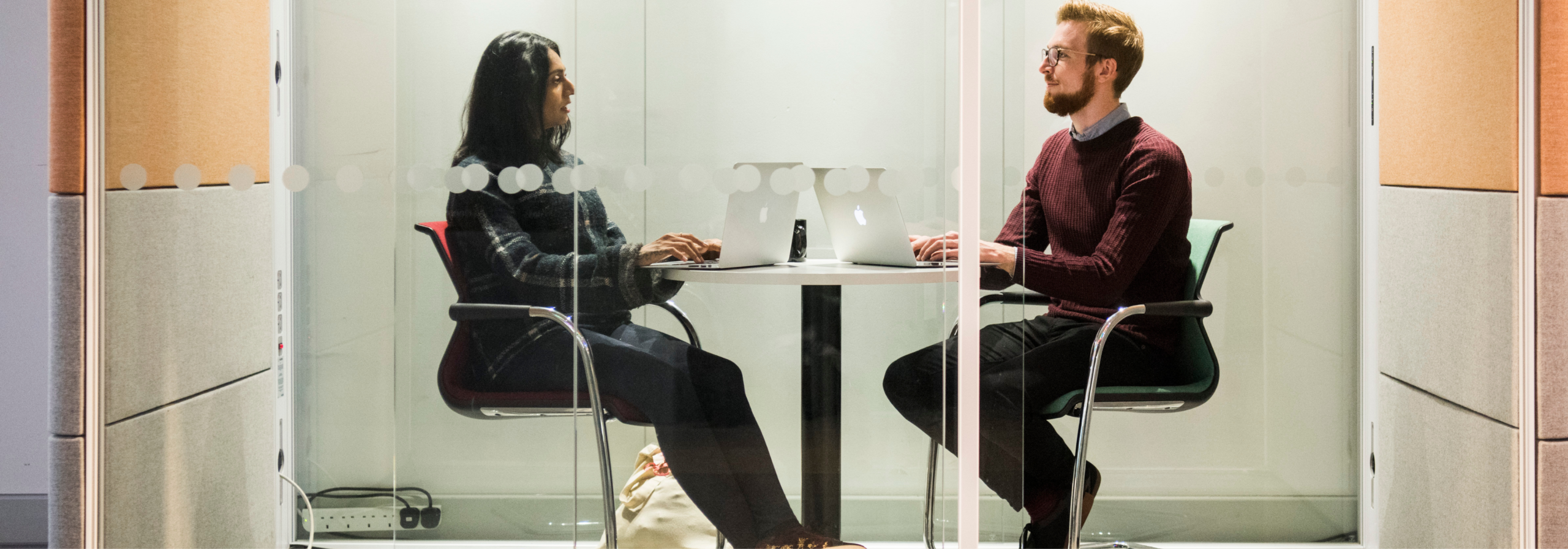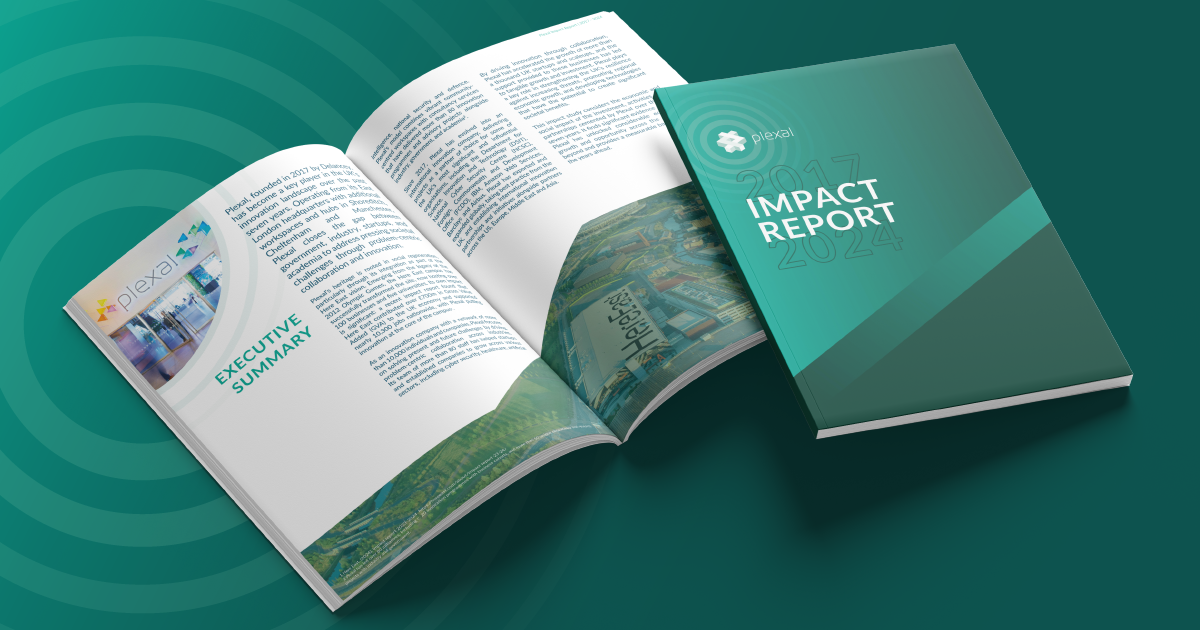Plexal has partnered with 12 organisations, including UCL, Here East and our member Disability Rights UK, to launch the East London Inclusive Enterprise Zone (ELIEZ) with the aim of supporting disabled entrepreneurs with launching and scaling their businesses. We want Plexal to be a place where disabled and non-disabled innovators collaborate, co-create solutions and shape the future of inclusive innovation.
ELIEZ members of Plexal get all our usual benefits as well as access to the networks of all the partners involved, including UCL’s Innovation & Enterprise team and Plexal’s inclusion team.
As part of our commitment to inclusive innovation, we wanted to make our workspace more accessible for people with a range of disabilities and make sure people from all backgrounds can access the same facilities and opportunities.
We’ve worked with Disability Rights UK and a number of partners involved in ELIEZ to identify areas of Plexal that could be adapted to make our environment more inclusive, and we’ve begun work on making the changes.
These include:
- Adding a magnetic latch to our main doors to make them easier for people in a wheelchair to use without having to hold the door open themselves or ask for assistance. The doors will also automatically open when there’s a fire alarm.
- Our Attlee meeting will feature an oval table instead of a rectangular one. This makes it easier for Deaf people to see everyone and read their lips. The plug sockets on this table will also be easier to reach for people in a wheelchair.
- Our current Wall of Innovation is being transformed into a breakout space, which comes complete with new meeting pods featuring tables that can be adapted for different heights that people in a wheelchair can use. The lighting here will be optimised so it doesn’t cause stress for people with sensory difficulties or autism. It will also be bright enough for people with visual impairments. For example, we’ll avoid spotlights (which create pools of light and shadow) and instead make sure the lighting is more even.
Lessons in accessible design

We want to encourage designers, architects and other workspaces to consider how they can create inclusive and accessible environments and learn from our journey.
1. Co-create solutions with disabled people
It’s important to listen to disabled people when designing or renovating spaces to include their perspectives. By working with Disability Rights UK, we were able to have a far deeper understanding of the practical challenges people with a range of seen and unseen disabilities might face by tapping into their network and expertise.
2. Don’t segregate, include
Early on we considered creating a fully accessible zone within Plexal and spending our renovation budget entirely on that. But creating a space like this would mean that our disabled members might face accessibility challenges in shared areas like our boardrooms and events spaces, making it harder for them to connect with the rest of our community.
Instead, we’ve spent our budget on adapting priority areas throughout Plexal. In an ideal world all workspaces would be designed for disability from the start, but we’ve worked within the constraints of fitting out an existing building. We’ve focused on making achievable changes that would make the maximum impact.
3. Identify and prioritise your goals
Disability Rights UK came back to us with a number of recommendations and we’re implementing many of these, but we also had to make difficult judgement calls on what recommendations not to action. For example, while street food smells may cause issues for people with sensory difficulties it’s important that we offer members food choices onsite that are convenient and affordable. We also chose not to lower the height of all our tables in Monument Square as many members enjoy having standing meetings.
You may not be able to do everything with your budget or cater to everyone’s needs, but don’t let that stop you from improving things where you can.
4. Consider people’s experiences and other non-physical challenges
Not all of the changes we’re making involve physical design or construction work. We’re also committed to providing disabled members with dedicated office hours to help them with their entrepreneurial journeys, and we aim to make our events as accessible as possible. We include our disabled members on panel events and make sure we always ask attendees to let us know if they have any specific accessibility requirements when they sign up, such as a ramp for the stage or having a British Sign Language interpreter present.
Sometimes being more inclusive can also be about choosing the right words and being aware of the power of language. For example, people who are Deaf with a capital “D” consider themselves to be culturally Deaf and actively use British Sign Language. We also avoid using certain words and phrases that disempower disabled people by talking about how they are “suffering” from a condition. As a general rule, it’s always best to ask someone how they would prefer to be described.
If you’re a disabled entrepreneur and are interested in ELIEZ membership, contact our inclusion team on inclusion@plexal.com or head to UCL’s website.


